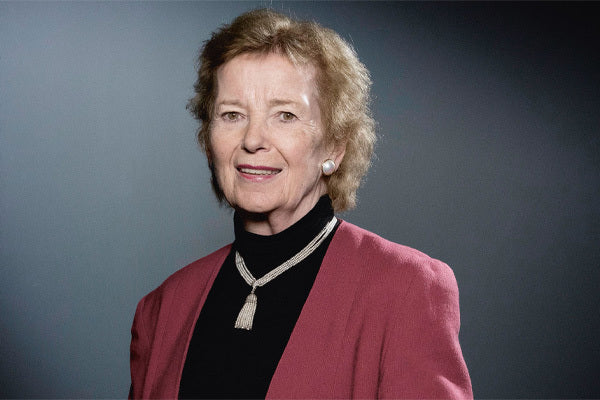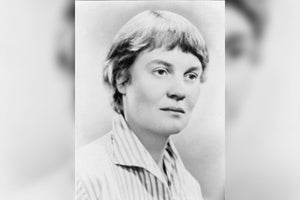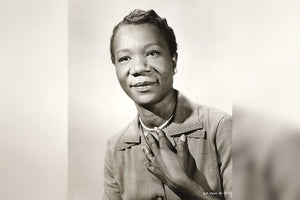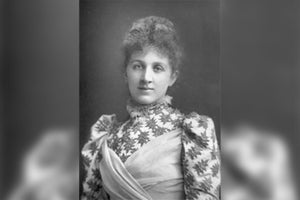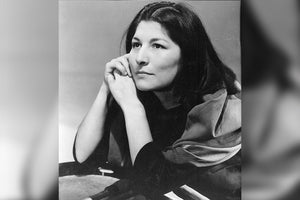Birthday – 21 May
Who is Mary Robinson?
Lawyer, diplomat and former President of Ireland, who also served as Chancellor of Dublin University, and honorary president of the European Inter-University Centre for Human Rights and Democratisation
Five Facts about Mary Robinson
Born in Ballina, County Mayo, Ireland
Educated at Trinity College and King’s Inns in Dublin, and Harvard University
Became a professor and lecturer, known for her expertise in constitutional law and human rights
Elected as the first woman President of Ireland
Published her memoir, ‘Everybody Matters: My Life: Giving Voice’ in 2012
Inspirational Quotes from Mary Robinson
“In a society where the rights and potential of women are constrained, no man can be truly free. He may have power, but he will not have freedom.”
“Human rights are inscribed in the hearts of people; they were there long before lawmakers drafted their first proclamation.”
“Today's human rights violations are the causes of tomorrow's conflicts.”
“The aim of human rights, if I may borrow a term from engineering, is to move beyond the design and drawing-board phase, to move beyond thinking and talking about the foundations stones - to laying those foundation stones, inch by inch, together.”
“We must understand the role of human rights as empowering of individuals and communities. By protecting these rights, we can help prevent the many conflicts based on poverty, discrimination and exclusion (social, economic and political) that continue to plague humanity and destroy decades of development efforts. The vicious circle of human rights violations that lead to conflicts-which in turn lead to more violations-must be broken. I believe we can break it only by ensuring respect for all human rights.”
Mary Robinson biography
Early Life
She was born to Dr. Aubrey Bourke, and Dr. Tessa Bourke, in a middle-class family, the only girl among four brothers. Her sense of equality and justice developed early in her life.
Husband and Children
She met her husband Nicholas Robinson, while studying law at Trinity College, Dublin. Together they have three children, Tessa, William and Aubrey.
Turning Point
After graduating from Trinity, she went on to study at Harvard and was influenced by the activism of youth who were protesting against the Vietnam war at the time. She was deeply impressed by their idealism and wanted to make a difference in public life in Ireland.
Mission and Work
After teaching at her alma mater, Trinity College, she established the Irish Centre for European Law there, with her husband. She was then elected to the International Commission of Jurists in Geneva, becoming known for her interest and work in the human rights field. She sat at the Upper chamber of Parliament, serving as a whip for the Labour party.
In 1990, she became the first woman President of Ireland, working towards making Ireland a more modern country, and increasing its global reach. During her seven- year tenure, she visited Somalia and Rwanda, in the aftermath of famine, civil unrest and tensions. After her stint as President, she became the United Nations High Commissioner for Human Rights (UNHCHR), continuing her work on behalf of the disadvantaged.
She visited China, and worked towards improving human rights in deeply troubled Kosovo. Prioritising the tackling of harmful practices of early child marriages and female genital mutilation, she was influenced by Nelson Mandela’s vision for humanity. She founded an NGO called Realizing Rights: The Ethical Globalization Initiative mandated to improving women’s leadership opportunities, migration and corporate responsibility.
She was awarded the CARE Humanitarian Award, the U.S. Presidential Medal of Freedom, and various other commendations during her distinguished career. She co-founded the Council of Women World Leaders which gathers together women in high positions, leveraging their power to promote democracy and gender equality. Climate change and its effect on the poorest is another area of interest for her, and in 2016, she was appointed as the UN Secretary-General’s Special Envoy on El Niño and Climate.
Legacy
Her prowess as an academic, legislator and barrister, belief in using law to address inequities, and her work in the human rights field has made her a truly iconic figure.
![]() Fast Shipping
Fast Shipping![]() Subscribe to our Newsletter
Subscribe to our Newsletter![]() 🌟 New Global Competition 🌟
🌟 New Global Competition 🌟